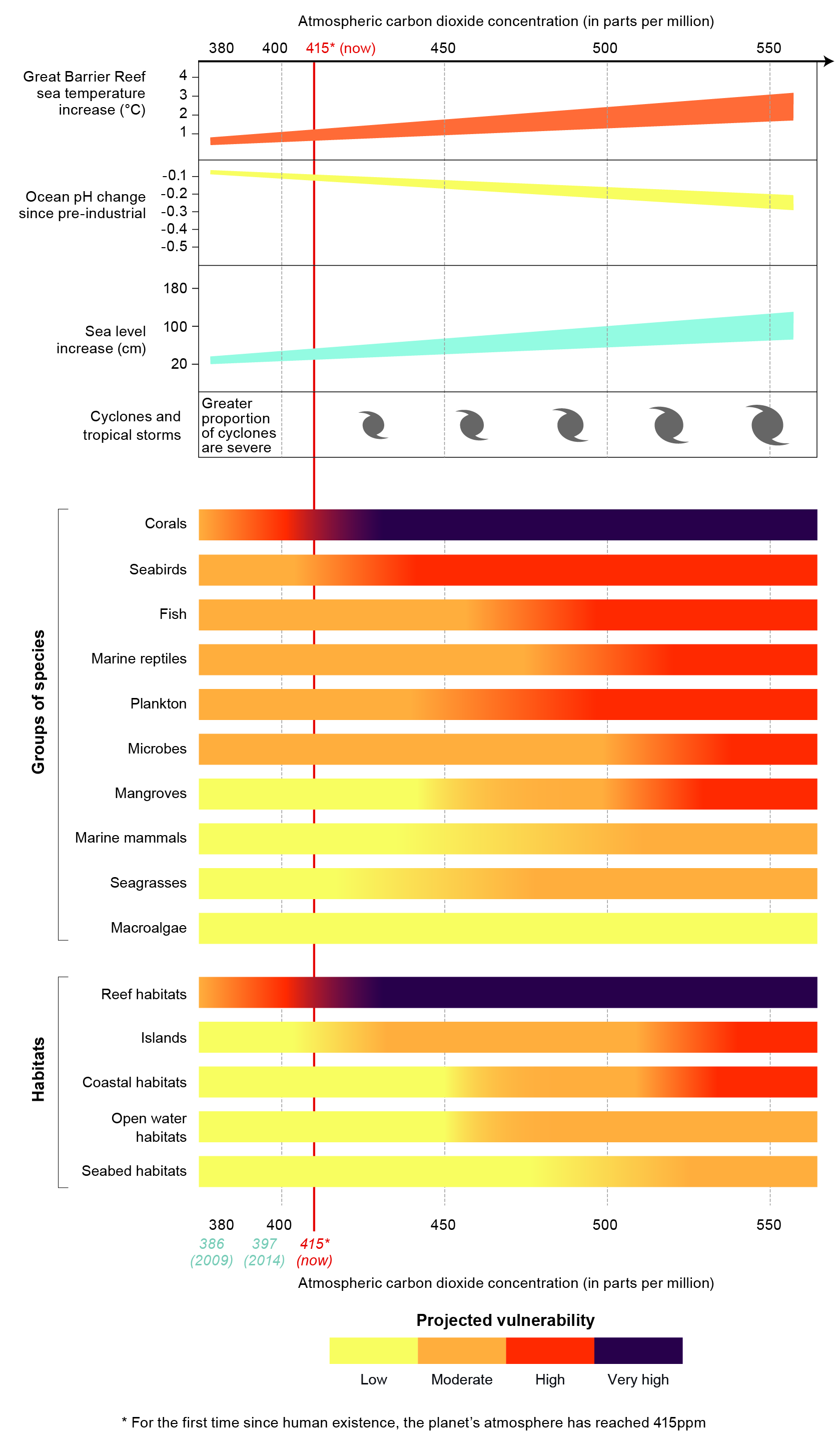Climate change pressure on the Great Barrier Reef
Key Finding
Climate change is having the greatest impact on the Great Barrier Reef, and the signals of climate change such as increasing water temperatures, are accelerating. Furthermore, climate change will amplify the impacts of other threats.
Climate change is the most significant threat to the Great Barrier Reef’s long-term outlook.
The rate and magnitude of climate change is increasing due to the continual rise in global carbon dioxide concentrations in the atmosphere directly linked to the burning of fossil fuels. The strongest and fastest possible action on climate change is critical to slowing deterioration of the Reef’s ecosystem and heritage values and supporting recovery.
Gradual sea temperature rise and temperature extremes, such as marine heatwaves, are the most immediate threat to the Reef as a whole and pose the highest risk. Heatwaves are becoming hotter, longer and more frequent.
Coral reefs and coral-dependent species are the most vulnerable to sea temperature increases, as evidenced by the 2016 and 2017 mass coral bleaching events. Cascading effects have already resulted in the decline of coral-associated fish and invertebrates. As the climate continues to change, the capacity of hard corals to survive, grow and reproduce is increasingly compromised.
At current rates of warming, global mean temperature would reach 1.5 degrees Celsius between 2030 and 2052 with serious implications for many ecosystems. There is also a very high risk of exceeding 1.5 degrees Celsius and approaching 2 degrees Celsius by 2065. Warming of 2 degrees Celsius would result in a completely new climate regime under which many ecosystems would undergo irreversible change. The extent to which the climate will change in coming decades depends on current and future greenhouse gas emissions.
More information:
- Great Barrier Reef Outlook Report 2019, and references therein
Relevant Sustainable Development Goals’ targets
See also: Estuarine and marine ecosystems assessment summary.
Metadata
Climate change pressure on the Great Barrier Reef as reported in the Great Barrier Reef Outlook Report 2019.
Vulnerability differs for a number of ecosystem components and depends on total atmospheric carbon dioxide concentrations. Changes in sea temperatures, ocean pH and sea level are indicative only, based on the latest climate projections.








